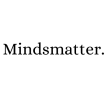How To Be Disciplined - According to the Roman Emperor Marcus Aurelius
Let's learn a thing or two about stoicism and self-discipline in just 10 steps

Although written over 2000 years ago, I find many useful lessons in The Meditations, Marcus Aurelius' autobiographical compilation.
Not only was he one of the most notorious emperors of Rome, but Marcus was also a notable apprentice to the school of Stoicism. A Greek school of thought that stayed that happiness is in the knowledge and mastery of one's own being.
If you're struggling to build new habits and be more disciplined, let's see what Marcus Aurelius has to say about it.
1. First you need a purpose
What is the purpose? Marcus Aurelius describes it in a very simple way: something you were created for and it makes you get out of bed.
So before you think about how to be disciplined and build habits, ask yourself: what is my purpose?
Be very clear about your goals and tasks that you must complete on the day that will bring you closer to that goal. It is much easier to be productive when you know very well what to do during the day. Make a list!
2. Make a plan
This part of the process the emperor called "turning your wishes to stone."
Now that you know what you want to achieve, it's time to get organized and create a plan. It's no longer about seeing the end goal, it's about seeing each of the steps that will lead you to it.
Discipline is about committing yourself every day to doing each of the little tasks that make progress.
3. Be consistent
You already have a purpose and a plan. Imagine that you want to get to a destination and you have a map. You just have to walk there, right?
For that, you must work on it every day. Many people know what they want and what to do, but they fail to be consistent. For Marcus, self-discipline takes action every day. Your ability to keep moving despite failures is more important than getting it right every time.
4. Limit the pleasures
Marcus Aurelius talked about practicing voluntary hardship. This basically consists of giving up little things that, although they are satisfactory, do not make us progress.
Voluntary hardship can be avoiding unhealthy meals, quitting alcohol and tobacco, or spending the entire afternoon watching TikTok videos.
It can also mean spending less money on unnecessary things or opting for a minimalist lifestyle.
By giving up so many trivial and inconsequential things, we can focus on what makes us progress.
5. Don't stress about what's out of your reach
In The Meditations, the emperor talks about how feeling stressed or distraught over little things is an enemy of discipline.
That is why Marcus Aurelio talks about the Dichotomy of Control, which he learned from Epictetus. What does it consist of?
Don't sweat the small stuff, bro.
Kind of.
Or in other words: don't worry about what you can't change. And if you can change it, then just work on it.
6. Don't be a victim
How many of you know a friend who could be a pro but "hurt his knee."
In self-discipline, excuses have no place. Blaming others or playing the victim is only a way of not taking responsibility for our lives.
If you failed at something, don't look to blame. Focus on what you can change in yourself to get it right next time.
7. Play the long run
For Marcus Aurelius, there is no better gratification than what takes time to come.
Those instant pleasures rarely make you a better person. Therefore, you must give up the satisfaction of now to work on the late satisfaction.
This means dieting, exercising, and giving up unhealthy habits to see results in the future. Take classes, prepare, not go to that party to stay studying for the exam.
8. Don't listen to those who have not achieved anything
On your way, you will meet hundreds of people who will not contribute anything useful to your progress. However, that won't stop them from giving you feedback.
Most of the time, those who will talk the most about your work are those who have not achieved anything, nor are they on the way to doing so. So stopping to listen to their opinions is a waste of time.
9. Learn from others
On the other hand, it is important that you find role models. Look for people who inspire you, who teach you lessons, and whose work you want to emulate.
Think about how what you do every day will make you look more like them and less like the people from the previous point.
10. Be self-critical
At the end of the day, the only person you can't fool is yourself. So do a tally of what you accomplished and what things you left undone.
Being analytical in our progress is vital for self-discipline since you don't have someone to watch you. You only have to be accountable to yourself and you owe it to yourself.
Read every story from Mindsmatter (and thousands of other writers on Medium) As a Medium member, a portion of your membership fee goes to writers you read, and you get full access to every story on Medium____________________________________________________
We made something a little great! The Anxiety Workbook, get yours by clicking here.
____________________________________________________
Want To Support Us?
You can like this story, tell a friend about it, buy us a coffee on Ko-fi, check us out on Medium, or all of the above! It all helps!
____________________________________________________
Want Even More?
Grab the latest updates from Mindsmatter. Exclusive stories, mental health resources, and more!
About the Creator
Mindsmatter.
Mindsmatter is written by Bola Kwame, Jack Graves and Emma Buryd.
De-stigmatizing mental illness one day at a time.
Our socials: https://linktr.ee/Mindsmatter






Comments
There are no comments for this story
Be the first to respond and start the conversation.